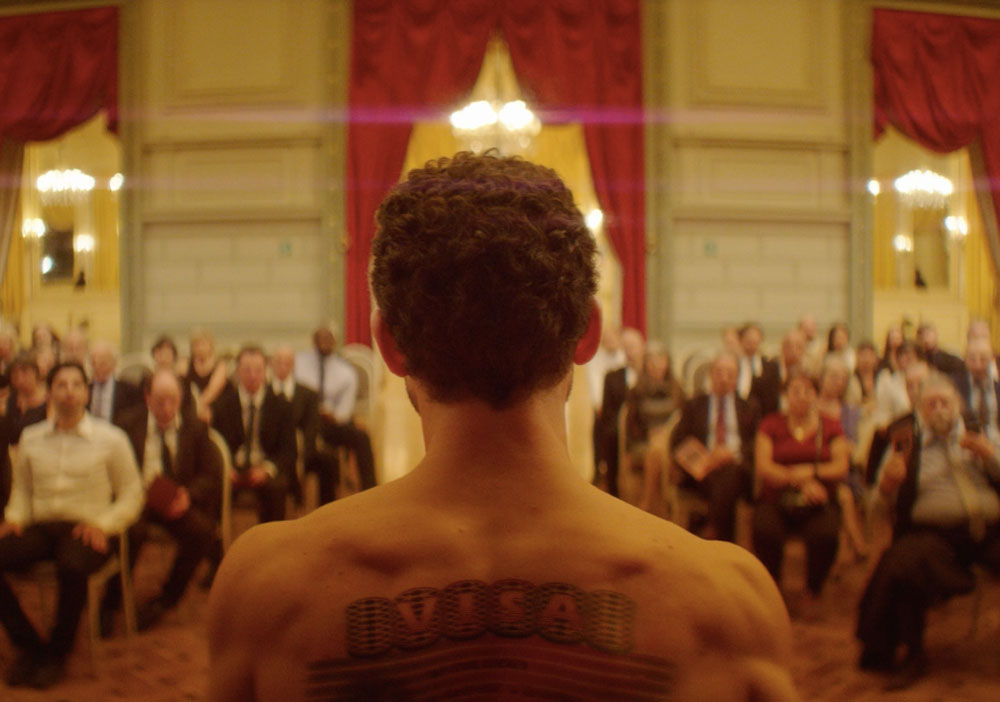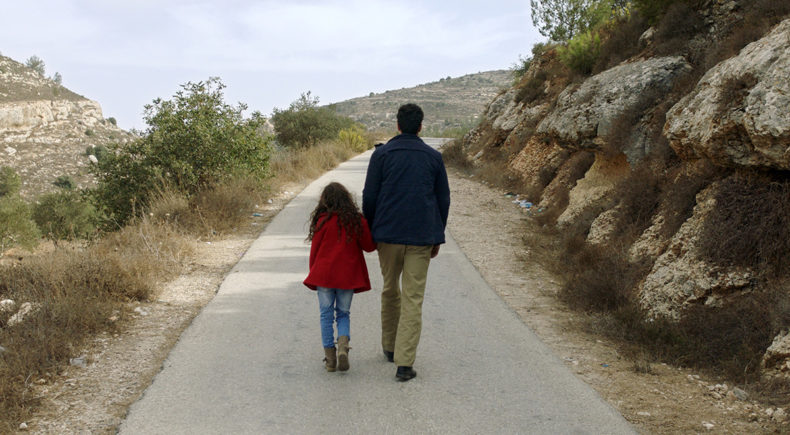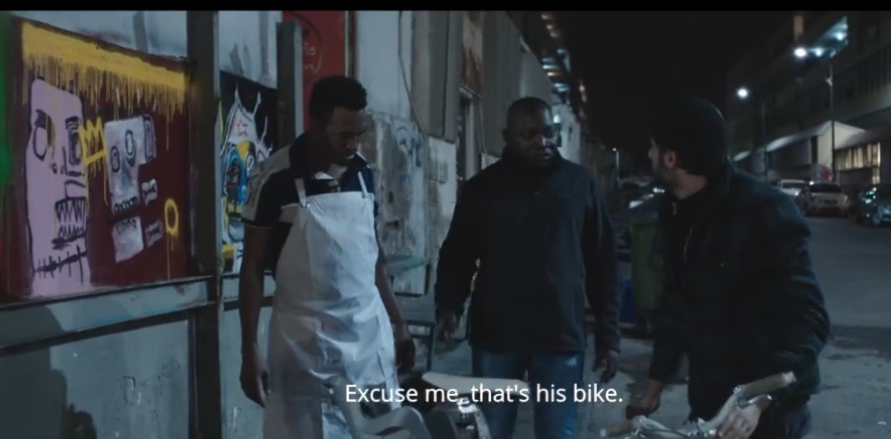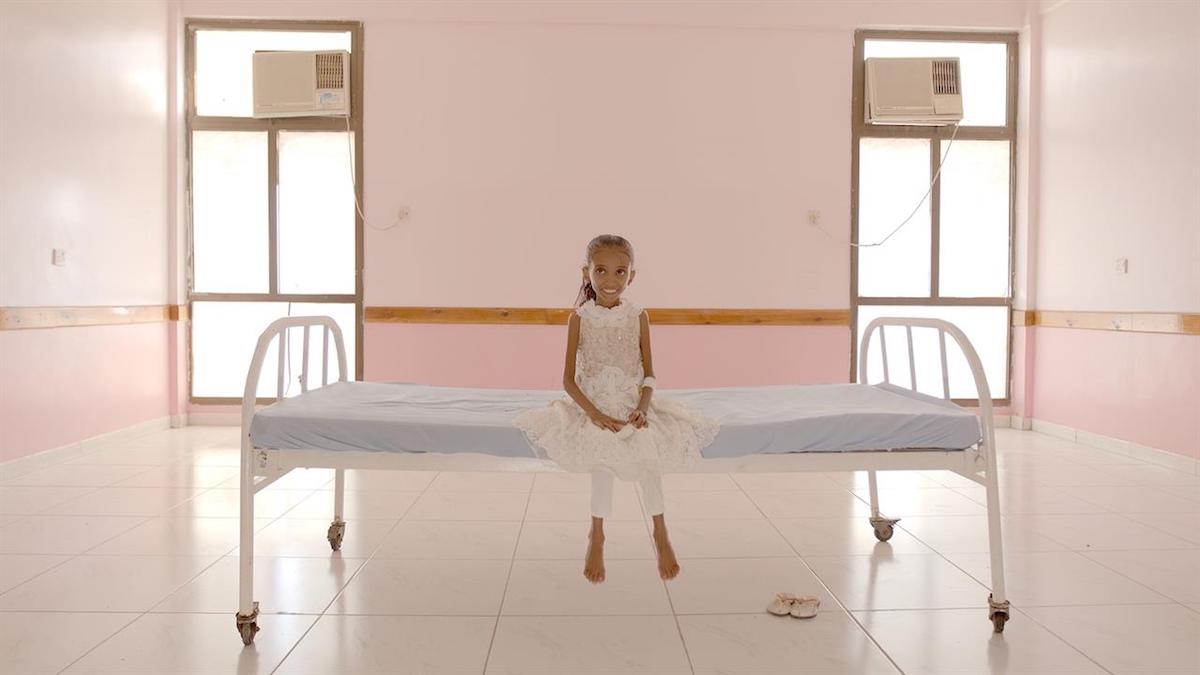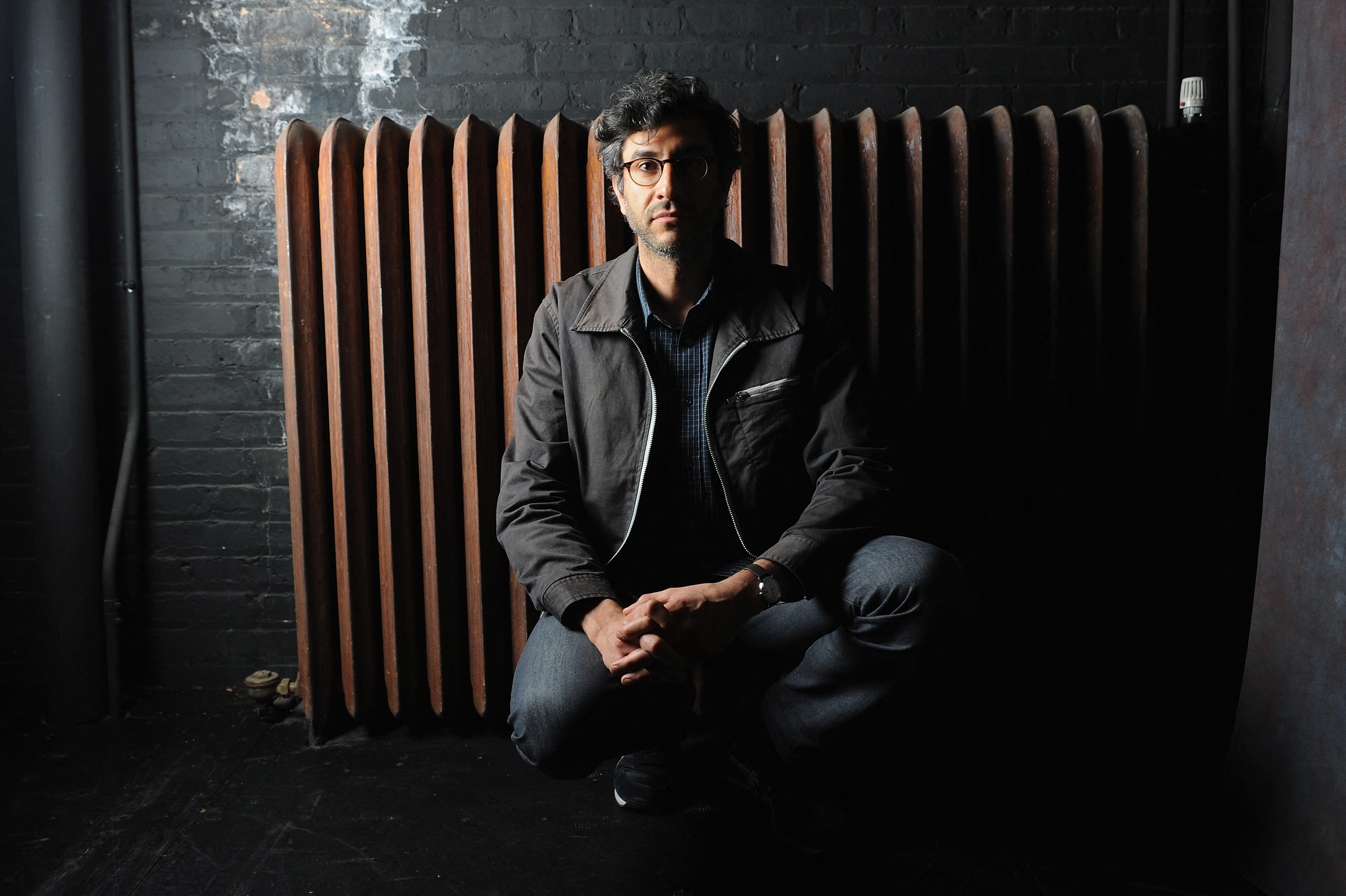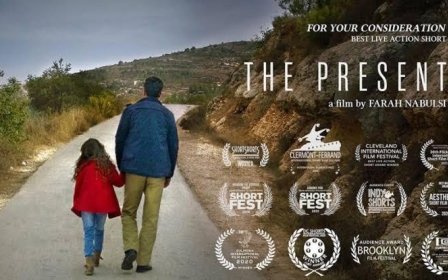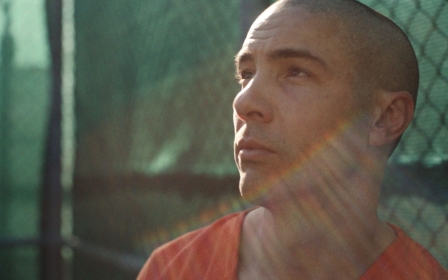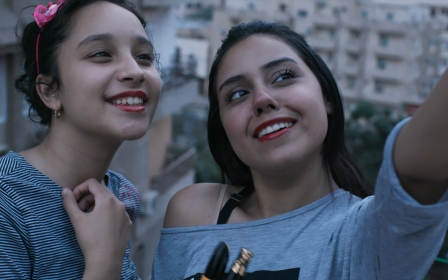Oscars 2021: Five nominees from the Middle East to look out for
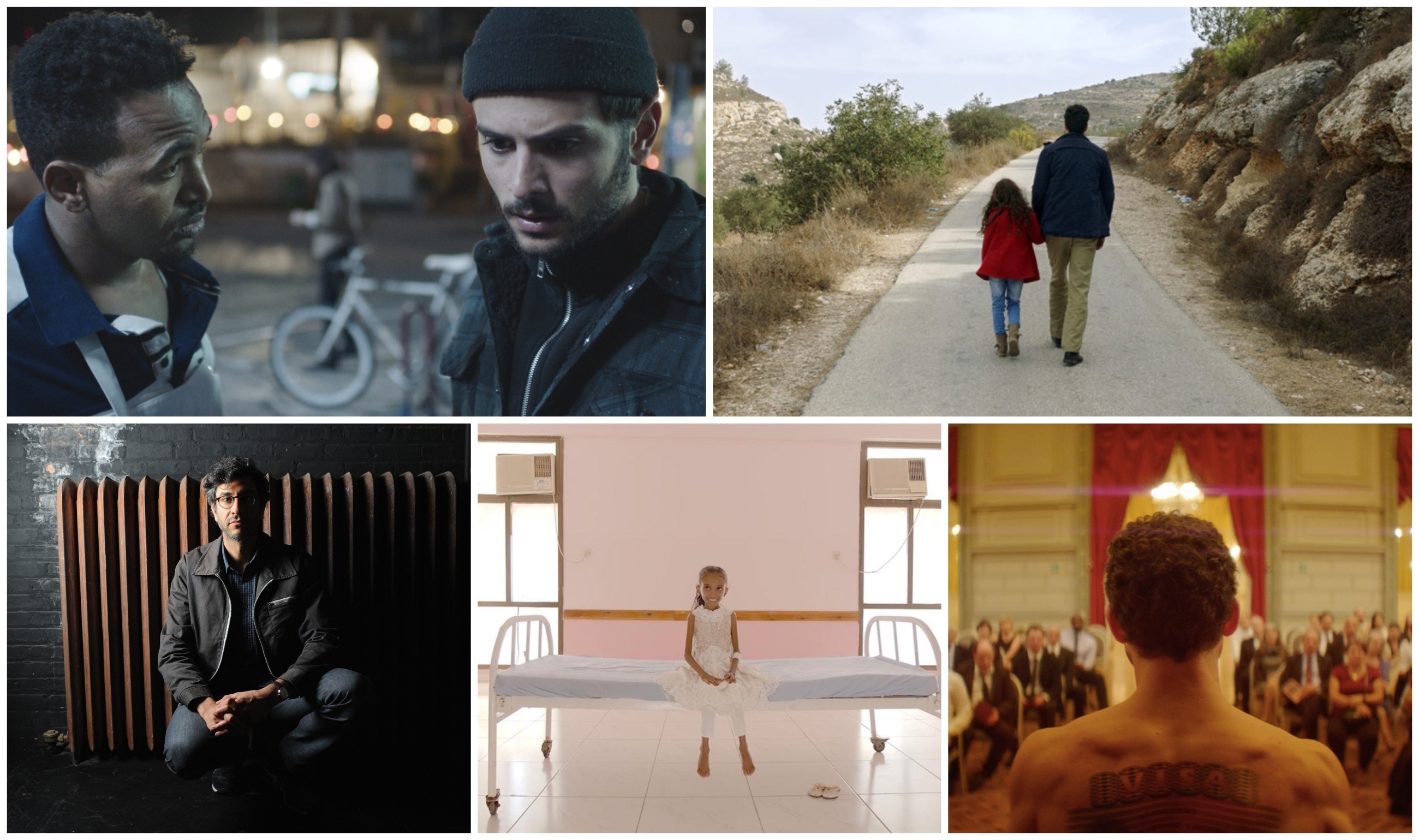
The 93rd Academy Awards - better known as the Oscars - take place on 25 April, in another unusual year for cinema.
The ceremony in Hollywood is taking place two months later than planned due to the coronavirus pandemic, and comes as the industry continues to grapple with the closure of cinemas and disruption to filming brought on by global lockdowns.
It has also been unprecedented for more positive reasons: Riz Ahmed became the first Muslim best actor nominee; while two women were nominated for best director for the first time.
But who’s breaking ground when it comes to the Middle East and North Africa?
Here we look at five names to keep an eye out for on Oscar night:
New MEE newsletter: Jerusalem Dispatch
Sign up to get the latest insights and analysis on Israel-Palestine, alongside Turkey Unpacked and other MEE newsletters
Kaouther Ben Hania (The Man Who Sold His Skin)
Director Kaouther Ben Hania made history this year when her film became Tunisia's first-ever to be nominated for best international feature.
The worlds of contemporary art and migration collide in The Man Who Sold His Skin, a left-field story about a Syrian refugee (played by Yahya Mahayni) who agrees to have a Schengen visa tattooed on his back and be exhibited in galleries globally, in an attempt to be reunited with his girlfriend in Europe.
“This is not a classic refugee story. We don’t have the boat and the sinking and what we usually see,” Ben Hania explained last month.
“In mass media, we always present refugees as statistics or numbers. They are not human beings with specific stories. Cinema gives us this possibility to be close to a human being and through this human being to understand what it is to be a refugee.”
Her 2017 film Beauty and the Dogs was also selected as Tunisia’s entry for best foreign-language film at the 91st Academy Awards, but was not nominated.
Ben Hania, who was born in the city of Sidi Bouzid in central Tunisia, believes that democratic change in the country has brought new opportunities for filmmaking.
“We are experimenting with the joy of freedom of speech so it gives us directors the possibility to make movies without censorship,” she said.
“There’s something happening in the creative scene in Tunisia. Since the revolution, politically and with the change of regime, we now need a cultural revolution to express ourselves.”
Although this year marks a breakthrough in the international category, there was Tunisian interest at last year’s Oscars, too.
Brotherhood, a feature about an Islamic State group militant returning to rural Tunisia, and Nefta Football Club, a light-hearted tale of two Tunisian brothers who stumble across bags full of white powder, were both nominated for best short film in 2020.
Farah Nabulsi (The Present)
British-Palestinian filmmaker Farah Nabulsi’s directorial debut The Present has emerged as one of the leading contenders for this year’s best live-action short film.
The tense 25-minute drama highlights the difficulties faced by Palestinians navigating Israeli checkpoints in the illegally occupied West Bank. It centres on protagonist Yusef (played by Saleh Bakri), who sets off with his young daughter to buy an anniversary gift for his wife.
The Present won the Bafta award for best short film earlier this month, and in her acceptance speech Nabulsi dedicated the award “to the people of Palestine, for whom freedom and equality are long, long overdue”.
The film was inspired by a 2013 trip to Palestine, in which Nabulsi experienced going through checkpoints herself and spoke to locals who were impacted by them on a daily basis.
One scene was filmed at the infamous real-life Checkpoint 300 in Bethlehem, which thousands of Palestinians are forced to go through each day.
“It’s humiliating and dehumanising standing there. This is not right for any human being. Animals should not be treated like this. This checkpoint has been made for maximum discomfort. You feel that,” Nabulsi told the Guardian.
The British-Palestinian director only entered the film industry in her late 30s, after switching from a career as a stockbroker.
Since then she has written and produced four short films, all of which focus on different aspects of Palestinian life, and is currently working on her first feature film.
Tomer Shushan (White Eye)
Also nominated in the short film category is Israeli director Tomer Shushan’s White Eye.
Shot entirely in one take, the film shines a spotlight on white privilege and the treatment of African migrants in Israel.
It tells the story of Omer, a young man in Tel Aviv who finds that his stolen bicycle is now owned by Yunes, an Eritrean man working at a meat-packing plant. Omer’s persistence in retrieving the bike has potentially grave consequences for Yunes, an undocumented migrant.
“In my experience, not many locals sound sympathetic when they talk about refugees,” Shushan said in an interview last week. “But more than them, I blame the people in power who don’t hesitate to use terms like ‘cancer of the society’, and this seeps into the minds of citizens.”
The 33-year-old director was referring to an incident in 2012, when former Israeli Minister of Culture and Sport Miri Regev called Sudanese asylum seekers “a cancer in our body”.
Israel has often been criticised for its treatment of migrants, which has included the incarceration of children and the recent closure of a vaccine centre in Tel Aviv, which was being used by undocumented asylum seekers.
White Eye is based on a predicament similar to one that occurred in Shushan’s own life, when his bike was stolen.
“I had worked in places where I made some of my best friends in the immigrant community," he said. "I even went to protests and demonstrations with them. And yet in one testing moment, my values flew out of the window. I had given in to societal prejudice.”
Hunger Ward
An American-produced film about the devastating famine in war-torn Yemen has been nominated in the short documentary category.
Hunger Ward follows two health workers, Dr Aida Alsadeeq and nurse Mekkia Mahdi, as they fight to save the lives of malnourished children in the country’s therapeutic feeding centres.
The situation, resulting from Yemen's civil war, which started in 2015, has been often described as the world's worst humanitarian crisis. The United Nations expects 2 million Yemeni children under the age of five to suffer from severe malnutrition this year.
The 40-minute film documenting the crisis was shot over one month, with the US production team’s visas valid for just 30 days. The crew was briefly detained during filming, and had an emergency extraction team and kidnap negotiators on standby if necessary.
Director Skye Fitzgerald hopes that the film will help bring an end to the man-made crisis, partly facilitated by US weapons sales to the Saudi-led coalition that intervened in Yemen six years ago.
“We are striving to create a film that activates both the heart and the intellect while simultaneously laying bare American complicity in the current civilian deaths in Yemen,” he said in a statement on the film’s website.
“We believe bringing to an audience the spectre of a human-caused, preventable famine made possible by American tax dollars will ultimately strengthen the call for legislative reform surrounding US military assistance to the Middle East.”
The film is the third in a trilogy by Fitzgerald about humanitarian crises in the Middle East and North Africa.
His 2015 documentary 50 Feet From Syria followed a Syrian-American surgeon helping victims of the Syrian civil war on the Turkish border, while Lifeboat documented refugees risking their lives to cross the Mediterranean to Europe.
The latter earned him a first Oscar nomination, in the same category as this year’s nod.
Ramin Bahrani (The White Tiger)
Iranian-American director and screenwriter Ramin Bahrani is nominated in the best-adapted screenplay category for The White Tiger.
The Netflix-distributed film, based on a Booker prize-winning novel of the same name, charts the rise of an ambitious driver, from poor villager to successful entrepreneur, in modern India.
Bahrani, who wrote and directed the film, aims to focus on underrepresented communities through his work.
“I’ve always been good at looking where no one else is looking, into the abysses, the cracks and corners,” he said in January. “I like to show people you don’t normally see in films - the lower class, the immigrants, the working class.”
The 46-year-old was born and raised in North Carolina to Iranian parents. In his early twenties, he spent three years in Iran to learn more about his country of origin.
“It was time to grapple with my family’s past and develop a deeper relationship to my cultural substrate,” he said. “I wanted to know what connects me to Iran and what culture feeds my films.”
The White Tiger was also nominated for best adapted screenplay at this year’s Baftas, and Bahrani has previously been nominated for an Emmy for his 2018 dystopian film Fahrenheit 451.
This article is available in French on Middle East Eye French edition.
Middle East Eye delivers independent and unrivalled coverage and analysis of the Middle East, North Africa and beyond. To learn more about republishing this content and the associated fees, please fill out this form. More about MEE can be found here.


